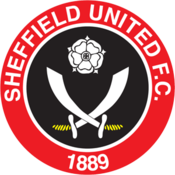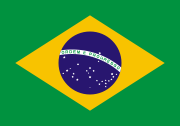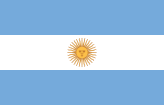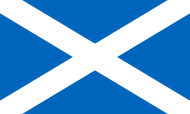Sheffield United F.C.
 |
|||
| Full name | Sheffield United Football Club | ||
|---|---|---|---|
| Nickname(s) | The Blades Red & White Wizards |
||
| Founded | 1889 | ||
| Ground | Bramall Lane Sheffield (Capacity: 32,702) |
||
| Chairman | |||
| Manager | |||
| League | The Championship | ||
| 2009–10 | The Championship, 8th | ||
|
|||
Sheffield United Football Club (pronounced /ˈʃɛfiːld juːˈnaɪtɪd/) is a professional English football club based in the city of Sheffield, South Yorkshire. They currently play in the English Football League Championship. They play at Bramall Lane in Sheffield, and play in red and white striped shirts.
Their nickname is 'The Blades'. The club emblem is said to have been designed by former player Jimmy Hagan.[1] They have the nickname The Blades due to Sheffield's worldwide reputation of steel production.[2] The emblem was first used for the 1977–78 season, replacing the city's coat of arms that had been used since 1966. Like all clubs, Sheffield United have a range of songs and chants sung by their fans, including the most notable: their unofficial anthem, The Greasy Chip Butty Song, which is sung before each half,[3] and often after the game if the team has performed well. Sheffield United won the League in 1898 and the FA Cup in 1899, 1902, 1915 and 1925. They were beaten finalists in the FA Cup in 1901 and 1936. Their best performance in the League Cup was reaching the semi finals in 2003.
History

Sheffield United formed on 22 March 1889 as a football and bandy club[4] at the Adelphi Hotel, Sheffield (now the site of the Crucible Theatre) by the President of the Cricket Club Sir Charles Clegg, as a way of keeping the Sheffield United Cricket Club together during the winter close season, following the departure of Sheffield Wednesday to their new ground at Olive Grove and generating income revenues from Bramall Lane over the winter. Sir Charles Clegg was incidentally also the president of Sheffield Wednesday FC. Gradually, as football took off, the football team supplanted the cricket team, such that in 1975, cricket was no longer played at Bramall Lane.
Undoubtedly United's heyday was the 30-year period from 1895–1925, when they were champions of England in 1897–98 and runners up in 1896–97 and 1899–1900, and FA Cup winners in 1899, 1902, 1915 and 1925, finishing runners up in 1901, and also eleven years after their cup final win in 1936. United have not won a trophy since 1925, bar those associated with promotion from lower-leagues, though they did reach both domestic cup semi-finals and the First Division play-off final in the 2002–03 season, ultimately losing all three matches.
Their darkest days came between 1975 and 1981. After finishing sixth in the First Division at the end of the 1974-75 season, they were relegated to the Second Division the following season and three years after that setback they fell into the Third Division. They reached an absolute low in 1981 when they were relegated to the Fourth Division, but were champions in their first season in the league's basement division and two years afterwards they won promotion to the Second Division.
They did fall back into the Third Division in 1988, but new manager Dave Bassett masterminded a quick revival which launched the Blades towards one of the most successful eras in their history. Successive promotions in the aftermath of the 1988 relegation saw them return to the First Division in 1990 after a 14-year exile. They survived at this level for four seasons (being founder members of the new FA Premier League in 1992) and reached an FA Cup semi-final in the 1992-93 season before being relegated in 1994.
They would remain outside the top flight for the next 12 years, although they did qualify for the playoffs under Bassett's successor Howard Kendall in 1997 and caretaker manager Steve Thompson in 1998. They were struggling at the wrong end of Division One when Neil Warnock was appointed manager in December 1999, and a financial crisis was preventing the club from being able to boost their squad, but in 2002-03 they enjoyed their most successful season for a decade, reach the semi-finals of both domestic cups and also reaching the Division One playoff final, where they were beaten by Wolverhampton Wanderers. Three years later, however, Warnock delivered a Premier League return to the Blades as runners-up in the rebranded Football League Championship. They lasted just one season back among the elite before being relegated, and Warnock resigned shortly afterwards. As of 2010-11, they are making a fourth attempt to try and reclaim their top flight status.[5]
Ground

Sheffield United play at Bramall Lane, near the centre of Sheffield. Bramall Lane is the oldest major league ground anywhere in the world, having hosted its first game in 1862,[6] a match between Hallam and Sheffield Club. Bramall Lane also hosted the worlds first ever floodlit football match on 14 October 1878 with two teams picked from the Sheffield Football Association. The power for the lights was provided by two generators. The crowd was 20,000 and the score 2-0. It was originally a cricket ground and the first important match played here was between Yorkshire and Sussex in 1855. A cricket club was formed in 1854 named Sheffield United Cricket Club and Bramall Lane was leased to the club by the Duke of Norfolk. The ground was opened with a cricket match on 30 April 1855. Yorkshire County Cricket Club also formed here, and played most of their games in Sheffield at Bramall Lane until the last match on 7 August 1973 against their old rivals, Lancashire. The ground has seen expansion in recent years, and by 2006, on completion of a 3,000 seat corner stand,[7] was an all-seater stadium holding 32,609.[8] In March 2009 the club were officially granted permission to expand the stadium once again, over two phases. The first phase would have seen the Kop being extended to increase the grounds capacity up to approximately 37,000. It would also have seen the removal of the main supporting pillars and a giant screen installed as part of the stands roof. The second phase would have seen the Valad Stand (formerly Arnold Laver Stand) also extended, bringing the total capacity to a 40,000 all seater. The expansion would also have had a secondary focus of being available for selection for FIFA World Cup matches in 2018 or 2022, if England's bid were to be successful. However on the 16th December 2009 the Football Association announced that should England's 2018 / 2022 World Cup bid be successful then any games played in Sheffield would be staged at Sheffield Wednesday's Hillsborough Stadium. Following this Sheffield United's Chief Executive, Trevor Birch, made it known that all planned ground redevelopment had been put on hold until the club was able to regain and maintain Premiership status.
Kits, colours and crest

Sheffield United may be known for their red and white striped kits, but The Blades began playing in white shirts and blue shorts. They briefly flirted with narrow red stripes for the 1890–91 season, before returning to all white the following year. The stripes returned in the 1892–93 season, with black shorts replacing the blue in 1904. The shirts remained largely unchanged until collars were first removed in 1955, replaced by V-necks until the 1966–67 season (when white socks were also used), and from here on the neck style varied hugely.
The traditional red and white striped remained while the 1974–75 season, when elements of black were added, until the 1979–81 kit. This was essentially white with a red breast, and with thin stripes down either side, and was created to accommodate the Cantor's logo, the club's principal sponsor. This was to be replaced by a striped kit, with the sponsor Bentley's (1981–82) and Renault (1982–83) written vertically down a white stripe over the left-hand side. Stripes continued while the 1995–96 season, albeit with various aids to accommodate the sponsors, including a yellow square for Laver from 1988–92 (the 1990–92 shirt also featured narrow black stripes through each white stripe) and a black hoop, also for Laver in the 1994–95 season. Then came the diamond kit, which was so badly received that the club reverted to stripes rather hastily the following season. Since then, red and white stripes and black socks with varying trim have been the order of the day, with black shorts for all but the 2002–05 seasons, when white and then red were tried.[9] The club also every few seasons opt to put thin black stripes between the red and white stripes. Sheffield United's home colours have been the inspiration for the kit of Irish club, Derry City. In 1934, Derry City adopted the stripes, while Billy Gillespie was manager of the club, in recognition of Gillespie's achievements at Sheffield United.[10]
The first time a crest appeared on the shirt was actually in the 1891–92 season, when a red crest appeared on the white shirt, but this disappeared the following season. United used the city of Sheffield's coat of arms from 1965–77, when a new crest was used, introduced by former manager Jimmy Sirrel, but designed apparently over 20 years previously by former player Jimmy Hagan. This consisted of two white crossed swords, or blades, the club's nickname, with a Yorkshire Rose (white) above, on a black background. This is surrounded by a red ring with "Sheffield United F.C." written around the top and "1889", the year the club was founded, underneath. This had been altered very slightly a few times, with a simple black embroidered crest appearing on shirts from 1987–90, and an all-white crest on a red-edged black shield for the 1992–99 seasons, when shields were in fashion with English football clubs, but from 2000–present it has reverted to its original form.
In August 2008 the club unveiled a new sponsor, the country of Malta to be represented on the shirts by visitmalta.com, the tourism board of the Mediterranean country.[11]
Macron, an Italian sportswear company supply Sheffield United's kits and sportswear. The four year deal was signed for a seven-figure sum. The 2009/2010 season is Sheffield United's 120th anniversary, and to mark this Macron has designed a 3rd kit for the Blades for that season. This shirt is black and has the names of every player to have ever played for the club woven into the material.
Sheffield United shirts can be seen in several films most notably in When Saturday Comes starring Sean Bean, but also, The Full Monty and Christopher Nolan's Batman Begins. Also, Def Leppard's Joe Elliott is seen wearing a shirt during his band's 1993 concert at Don Valley Stadium. Joe and bandmate Rick Allen are big Sheffield United fans.
Shirt sponsors and manufacturers
| Year | Kit Manufacturer | Main Shirt Sponsor | Secondary Sponsor |
|---|---|---|---|
| 1973–75 | Umbro | ||
| 1975–79 | Admiral | ||
| 1979–81 | Hobott | Cantor's | |
| 1981–82 | Bentleys | ||
| 1982–83 | Renault | ||
| 1983–85 | Umbro | Simonds | |
| 1985–95 | Arnold Laver | ||
| 1995–97 | Avec | Wards | |
| 1997–99 | Le Coq Sportif | ||
| 1999–00 | Blades | ||
| 2000–02 | Patrick | Midas Games | |
| 2002–04 | Le Coq Sportif | Desun | |
| 2004–06 | HFS Loans | ||
| 2006–07 | Capital One | ||
| 2007–08 | Valad | ||
| 2008–09 | VisitMalta.com | ||
| 2009–Present | Macron | Capita |
Players
- As of 11 August 2010.[12]
Current squad
Note: Flags indicate national team as has been defined under FIFA eligibility rules. Players may hold more than one non-FIFA nationality.
|
|
Former players
Reserve and Academy teams
- Sheffield United Reserves currently play in the Pontin's Holidays League East at the Coach and Horses ground.Sheffield F.C.'s home ground.
- Sheffield United Academy U18s currently play in the FA Premier Academy League U18s Group D at the Shirecliffe ground at Firshill Crescent.
International links
In January 2006, Sheffield United became the first foreign club to take over a Chinese team[13] when they purchased the football club Chengdu Wuniu, based in the city of Chengdu, China.[14] The club was re-named the Chengdu Blades, after their new owners. Sheffield United shirts are now sold in China, and Chengdu shirts are now sold in Sheffield, increasing revenue streams for both clubs.
In February 2008, Kevin McCabe, the club's chairman, finalised an agreement with Budapest-based Ferencváros to buy its football team, and also negotiated with the Hungarian government to purchase and develop the ground around Stadion Albert Flórián.[15] The development of a new all-seater football stadium with a capacity of 25,000 has been started. A match was played in Budapest to celebrate the link-up.[16]
The Blades also have operating/business and exchange of ideas links with Central Coast Mariners[17] of Australia and White Star Woluwé[18] of Belgium.
The Australian Valad Property Group were sponsors of the South Stand at Bramall Lane. From the 2009-10 season, the South Stand sponsors are GACWorld
Affiliated clubs
 Chengdu Blades
Chengdu Blades São Paulo
São Paulo Estudiantes
Estudiantes Ferencvaros
Ferencvaros Central Coast Mariners
Central Coast Mariners.svg.png) White Star Woluwé
White Star Woluwé Tata Football Acadamy
Tata Football Acadamy
Rivalries
Sheffield United have numerous rivalries. The most notable rivalry is with their city neighbours Sheffield Wednesday, with whom they contest the Steel City derby. Sheffield United's other rivals are mainly other teams from Yorkshire, such as Leeds United, Barnsley, Rotherham United and Doncaster Rovers. West Ham United are also fierce rivals due to the 'Tevez saga'.
Sheffield United, also have, along with many other sports teams across Yorkshire, a strong rivalry with Nottingham Forest. This can be attributed to the miners strikes of the 1980s, where workers in the pits of Nottinghamshire did not join the strike (known locally as scabbing) whereas miners from Yorkshire were on strike.
Supporters
Sheffield United derives support from a broad cross-section of the community. The majority of football fans in the S2 postcode of the city (where the ground is located) are Sheffield United fans, particularly the Sharrow, Heeley, Highfield, Manor and Park Hill areas of the city. There is also a lot of support in the S3 areas, close to the city centre, S8 and around the Gleadless area, a strong contingent from the Dearne Valley, with a large supporters club from Swinton[19] in particular. The club usually run two or three special student deals each season, and so also have a small student following, based in the suburbs of Crookes and Broomhall.
Famous supporters
Supporters of note include former manager Neil Warnock,[20] actor Sean Bean,[21] former Sports Minister Richard Caborn, MP,[22] the singer Paul Heaton,[23] athlete Jessica Ennis, musicians Joe Elliott and Antony Genn, television presenter Anna Walker,[24] author G. P. Taylor,[25] Olympic Laser Class Sailing gold medalist Paul Goodison has followed Sheffield United since he was a youngster[26] and Alex Hammond (Sky Sports News presenter). Former Monty Python actor Michael Palin also supports the Blades.[27][28] As a boy Argentinian legend Juan Sebastian Veron dreamed of playing for the Blades.[29]
Nickname
Sheffield United's predominant nickname is "The Blades", a reference to Sheffield's status as the major producer of cutlery in the United Kingdom. Because of this, the nickname would also be used in reference to rivals Sheffield Wednesday. Another nickname used was "The Cutlers", but this failed to catch on. In the early days, the two teams would be differentiated by the grounds they played at, with United being referred to as "Laneites" (in reference to Bramall Lane), while Wednesday would be called "Groveites", as they played at Olive Grove. In 1907, Wednesday came to be referred to as "The Owls", in reference to their new ground in Owlerton, meaning that United could claim the "Blades" nickname for themselves.
When Sheffield United purchased Chinese club Chengdu Wuniu in 2006, they redesigned the club crest in the style of the Sheffield United badge and renamed the team "Chengdu Blades".
Chants
Like many English clubs, Sheffield United supporters have a wide variety of chants and songs, the most famous of which is The Greasy Chip Butty Song. Many others are intended to berate Sheffield Wednesday, the most famous of which are (to the tune of "Singing the Blues): "Never felt more like Swinging a pig/from Hyde Park Flats to Wadsley Bridge/United! You've got me swinging a pig/As you do, as you do, as you do!" and "No pigs fans in town/No Hillsborough to sadden my eyes/Jack Charlton is dead/and the pig's fans have fled/and the year is 1889!". They can also be heard to sing "Are you Wednesday in disguise" to poorly-playing teams—an attempt to undermine both the opposition and Sheffield Wednesday.[30] A popular chant at the moment is "Oh when the Blades go marching in!" this is usually sung for a long period of time whilst playing away from home. Songs played before kick off at Bramall Lane include 'Meet Her At The Love Parade' by Da Hool, 'We took Pelham' by Deadly Avenger and 'United' by Judas Priest and. These songs are known to fans as the 'Countdown To Kick-Off'. . Another popular chant is (sung to the tune of "I am sailing"): We are Bladesmen, we are Bladesmen, super Bladesmen, from the Lane. We are Bladesmen, super Bladesmen, we are Bladesmen, from the Lane".
League history
|
|
|
|
- Seasons spent at Level 1 of the football league system: 60
- Seasons spent at Level 2 of the football league system: 39
- Seasons spent at Level 3 of the football league system: 5
- Seasons spent at Level 4 of the football league system: 1
|
Pos = Position; P = Played; W = Won; D = Drawn; L = Lost; F = Goals For; A = Goals Against; Pts = Points
Honours

- Division One/Premier League
- Champions: 1897/1898
- Runners-up: 1896/1897, 1899/1900
- Division Two/Championship
- Champions: 1952/1953
- Runners-up: 1892/1893, 1938/1939, 1960/1961, 1970/1971, 1989/1990, 2005/2006
- Division Three/League One
- Runners-up: 1988/1989
- Division Four/League Two
- Champions: 1981/1982
- FA Cup
- Winners: 1899, 1902, 1915, 1925
- Runners-up: 1901, 1936
Managerial history
|
|
|
Assistant Managers
 Wally Downes (1988–95)
Wally Downes (1988–95) Nigel Spackman (1995–97)
Nigel Spackman (1995–97) Adrian Heath (1997–98)
Adrian Heath (1997–98) Russell Slade (1998–2000)
Russell Slade (1998–2000) Kevin Blackwell (2000–04)
Kevin Blackwell (2000–04) Keith Curle (2004–05)
Keith Curle (2004–05) Stuart McCall (2005–07)
Stuart McCall (2005–07) Brian Kidd (2007–08)
Brian Kidd (2007–08) Sam Ellis (2008-)
Sam Ellis (2008-)
Bibliography
- Matthews, Tony (15 December 2003). The Official Encyclopaedia of Sheffield United Football Club. Britespot Publishing Ltd. ISBN 1-904103-19-7.
- Clarebrough, Denis (30 September 1997). Sheffield United Football Club. Chalford Publishing. ISBN 0-7524-1059-8.
- Armstrong, Gary; Garrett, John (1 December 2007). Sheffield United Football Club - The Biography. Hallamshire Publications Ltd. ISBN 1-8747-1865-2.
References
- ↑ "Sheffield United - The Biography" by Gary Armstrong with John Garrett, ISBN 1-874718-65-2
- ↑ There are numerous sources showing the international reputation of Sheffield for metallurgy, and in particular steel and cutlery manufacture. Some examples are: the Oxford English Dictionary, which begins its entry for Sheffield, "The name of a manufacturing city of Yorkshire, famous for cutlery"; and the Encyclopaedia Britannica, which in its entry for Sheffield states that by 1830 Sheffield had earned "recognition as the world centre of high-grade steel manufacture". David Hey in the preface to his 1997 book Mesters to Masters: A History of the Company of Cutlers in Hallamshire. (Oxford University Press, ISBN 0-19-828997-9) states "It (Sheffield) was known for its cutlery wares long before the incorporation of the Cutlers' Company in 1624, and long before it acquired an international reputation as the steel capital of the world."
- ↑ "The Greasy Chip Butty Song". YouTube video. http://uk.youtube.com/watch?v=jA14bKuuSms. Retrieved 2007-10-16.
- ↑ http://www.gaissa.com/Sport_Game/database/Team_Sports/Bandy.htm
- ↑ [1]
- ↑ "A brief history". Sheffied United official website. http://www.sufc.premiumtv.co.uk/page/FactsFigures/0,,10418~1081166,00.html. Retrieved 2008-10-07.
- ↑ 2000 seat corner stand, completed September 2006. Retrieved on 3 December 2006
- ↑ BBC webpage. Retrieved on 3 December 2006
- ↑ Moor, Dave. "Historical Football Kits". http://www.historicalkits.co.uk/Sheffield_United/Sheffield_United.htm. Retrieved 9 April 2007.
- ↑ "Derry City FC - A Concise History", CityWeb, 2006.
- ↑ "Blades Direct - home kit". sufc-shop.co.uk. https://www.sufc-shop.co.uk/superstore/index.php?cPath=81_84&osCsid=e4c3041fd76bdb4628ec380c935d3b29. Retrieved 2007-10-16.
- ↑ "Player Profiles". Sheffield United F.C.. http://www.sufc.co.uk/page/ProfilesDetail/0,,10418,00.html. Retrieved 2010-08-10.
- ↑ "Sheffield United take over Chengdu football club". People's Daily Online. 2006-01-13. http://english.peopledaily.com.cn/200601/13/eng20060113_235136.html. Retrieved 2007-10-31.
- ↑ "Chengdu Blades - Sheffield students welcome Chinese Blades". University of Sheffield. http://www.shef.ac.uk/chengdublades/blades.html. Retrieved 2007-10-31.
- ↑ "Blades chief wins Ferencvaros bid". BBC Sport Online (BBC). 13 February 2008. http://news.bbc.co.uk/sport1/hi/football/teams/s/sheff_utd/7243262.stm. Retrieved 2008-10-07.
- ↑ "Chairman Celebrates Win". Sheffield United official website. 2008-03-27. http://www.sufc.premiumtv.co.uk/page/FerencvarosDetail/0,,10418~1275433,00.html. Retrieved 2008-10-07.
- ↑ "Blades expand worldwide links with Mariners agreement". Sheffield United F.C.. 2008-02-26. http://www.sufc.premiumtv.co.uk/page/NewsDetail/0,,10418~1250361,00.html. Retrieved 2008-03-27.
- ↑ "Royal White Star Woluwe". Sheffield United F.C.. 2007-12-07. http://www.sufc.premiumtv.co.uk/page/WhiteStarWoluwe/0,,10418~1185107,00.html. Retrieved 2008-03-27.
- ↑ "Swinton Blades". http://www.swintonblades.com.
- ↑ Neil Warnock, famous supporter: article at The Independent website, via the FindArticles service.
- ↑ Sean Bean, famous supporter: his Tiscali.co.uk biography.
- ↑ McRae, Donald (28 March 2005). "Interview: Richard Caborn, sports minister". The Guardian (London). http://www.guardian.co.uk/sport/2005/mar/28/interviews.politics. Retrieved 7 October 2008.
- ↑ Paul Heaton, famous supporter: from a Guardian Unlimited interview.
- ↑ "Sheffield's Anna Walker". BBC. March 2005. http://www.bbc.co.uk/southyorkshire/content/articles/2008/04/24/the_games_feature.shtml. Retrieved 7 October 2008.
- ↑ G. P. Taylor, famous supporter: Shadowmancer.com website.
- ↑ Paul Goodison, famous supporter : sufc.co.uk.
- ↑ "Call yourself a football fan?". http://www.wsc.co.uk/content/view/3967/29/. Retrieved 17 July 2010.
- ↑ "Michael Palin interview". http://www.wanderlust.co.uk/magazine/articles/interviews/michael-palin-interview. Retrieved 17 July 2010.
- ↑ "My uncle played for Sheffield United". The Guardian (London). 2003-03-02. http://www.guardian.co.uk/sport/2003/mar/02/football.features1. Retrieved 2010-05-23.
- ↑ Aitken, Sean. "Blades Songs and Chants". Swinton Blades. http://www.swintonblades.com/songs.htm. Retrieved 2007-10-31.
External links
- Official Site (English)
- Sheffield United F.C. on BBC Sport: Club News – Recent results – Upcoming fixtures – Club stats
|
|||||||||||
|
|||||
|
|||||||||||||||||||||||
|
||||||||||||||